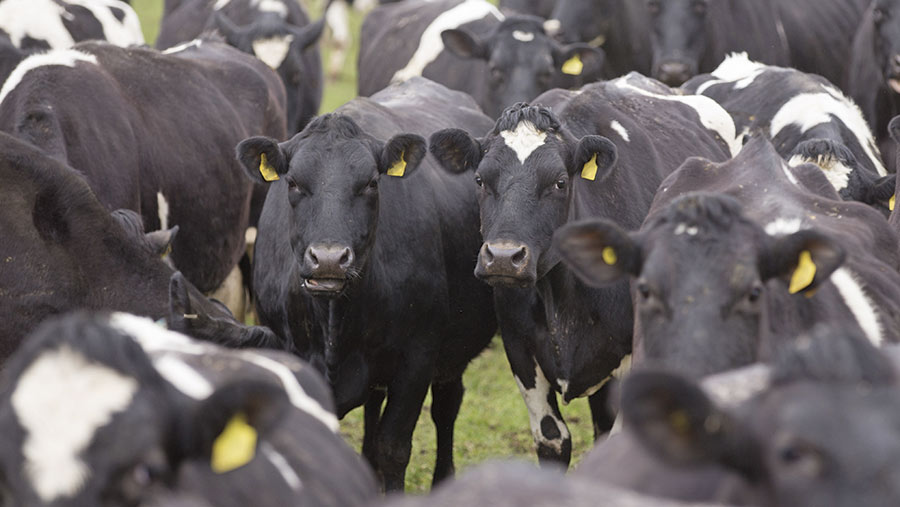Cattle vaccination just ‘part of the arsenal’ says Defra
 Dairy cows. © Tim Scrivener
Dairy cows. © Tim Scrivener Vaccinating cattle against bovine TB is likely to be just another “part of the arsenal” rather than a solution by itself, according to Defra’s chief scientific adviser.
Speaking on the Farmers Weekly Podcast, Prof Gideon Henderson said that trials would kick off early next year, to check both the accuracy of the new Diva (Differentiating Infected from Vaccinated Animals) test, as well as the efficacy of the BCG vaccine itself.
“The critical thing is that we are trialling the combination of the vaccine and the test, which enables us to distinguish vaccinated animals from an infected animal,” he said. “That has not been field-trialled before.”
See also: Cow-only approach to TB ‘doomed to failure’, warns top vet
The four-year trials will be in two phases, Prof Henderson explained.
The first phase will involve about 300 cattle and will check that the new Diva test is safe and does not give “false positives”.
The second phase will involve about 2,000 cattle from seven herds in the TB high-risk area (HRA), which will be both vaccinated and tested.
“That will really give us the evidence we need to work out the success and the utility of this new test and vaccine combination.”
Deployment
Asked whether the new vaccine would be used to create firebreaks around the HRA, or deployed on all cattle generally, Prof Henderson said it would probably be the former.
“It would form part of the arsenal that we use to try and bring TB down across the country,” he said. “It would probably be best deployed in areas that are currently high risk for TB, to decrease the risk of transmission in that setting and help lower TB in those areas.”
Prof Henderson said he was confident the new BCG vaccine would be effective, pointing to work in New Zealand that showed it provided an 80% protection level, though he anticipated it would need to be given annually.
Trade issue
But there was still a potential problem that using a vaccine would jeopardise the chances of the country ever declaring itself TB-free.
“The organisations that set standards for trade in animals don’t currently make provision for vaccination of cattle against TB,” said Prof Henderson.
“But hopefully these field trials will provide us with the evidence that enable us to try and address that and put it into international trade agreements.”
Meanwhile, existing testing will continue to be operated for the time being, though changes were foreseen from 2024 once the new field trials were complete.
Phase out culling
According to the Defra statement announcing the trials, it is envisaged that a cattle vaccine could be deployed by 2025 and is intended to pave the way for an end to badger culling.
“As wider preventative measures, like cattle vaccines are introduced, we will accelerate other elements of our strategy and start to phase out badger culling,” said Defra secretary George Eustice.
The strategy also envisages improved testing to intercept bovine TB earlier and increased badger vaccination, to reduce the disease load in wildlife.
